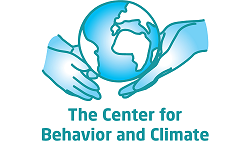Climate News - July 2020
Climate Change Needs Behavior Change
Caroly Shumway, Ph.D.
Did you know that over 70% of Americans believe in and care about climate change (Yale Climate Change Survey, 2019)? Why, then, do people not act? Climate change is the perfect psychological storm of future discounting, despair, and lack of perceived efficacy of action:
- Future discounting: we rank present risks (even unlikely ones) higher than future risks;
- Despair: climate change news often focuses solely on the likely impacts, which are depressing to read, instead of stories of hope; and
- Lack of perceived efficacy of action: individuals don't think their own pro-climate actions or collective actions will matter.
The good news is that these barriers are not insolvable. This month, we will be releasing our first Behavior Change and Climate Mitigation 101 course. The course, designed for environmental practitioners and educators, provides practical guidance on how to break through the psychological barriers of inaction. It teaches one how to determine which behavioral tools to use for different audiences and for different situations. Some of the effective interventions described in the course include: 1) Highlighting response efficacy of collective and individual action to encourage public behaviors such as voting, writing to government officials, etc. (Doherty and Webler, 2016); 2) Helping people to feel good about pro-climate behaviors (Van der Linden, 2018); 3) Countering climate despair with stories of hope, pride, and climate action (Feldman and Hart, 2018; Antonetti and Makleen, 2014); 4) Making it easy to change relevant daily habits such as transportation, eating, energy use, etc., with choice architecture and other strategies (Ebeling and Lotz, 2015); 5) Countering cognitive biases such as future discounting with legacy motivation (Zaval et al., 2013); 6) Utilizing block leaders, peers, and social groups to model trending behavior; and 7) Tailoring behavioral tools and messages to ideologically different audiences (Gustafson et al., 2020). You can access all of the references here. We encourage behavior analysts to join other behavioral researchers and practitioners in advancing pro-climate behaviors worldwide.
P.S. Did you know of the important role that the ocean plays in buffering CO2 and the heat from temperature increases due to global warming? If not, you may be interested in the release of our first free course DiveDeeper: Blue Carbon. Blue carbon is the carbon stored by coastal ecosystems such as mangroves, seagrasses, and tidal marshes. The course is a supplement to the excellent short climate change videos created by Dave Borlace of Just Have a Think, with whom we've just begun to collaborate. I hope you'll check out the videos and our course.
Return to Climate News Archive
